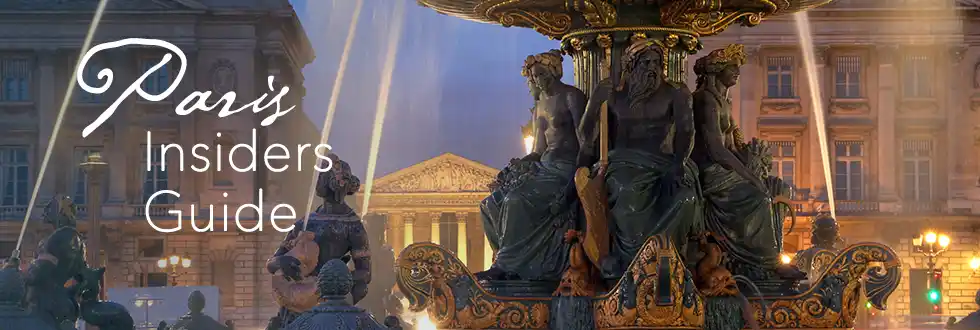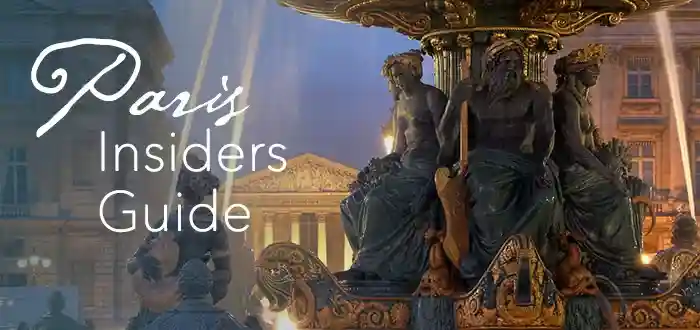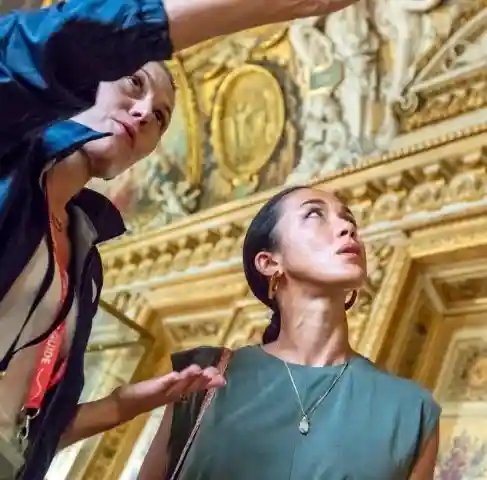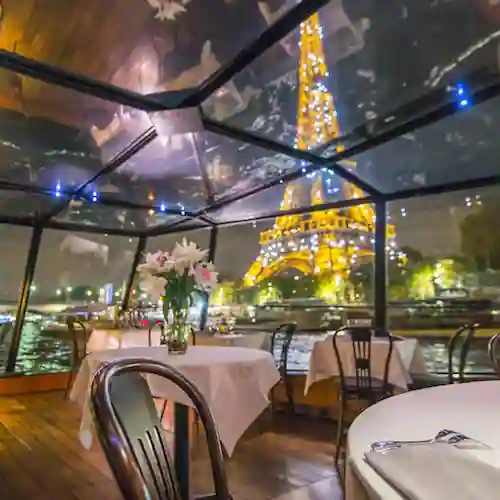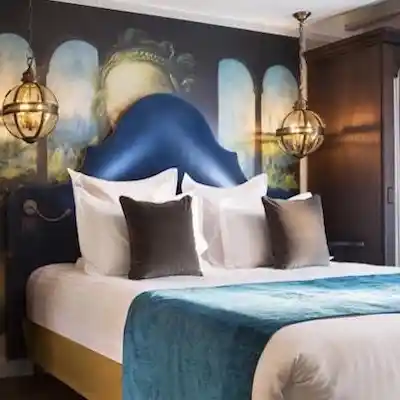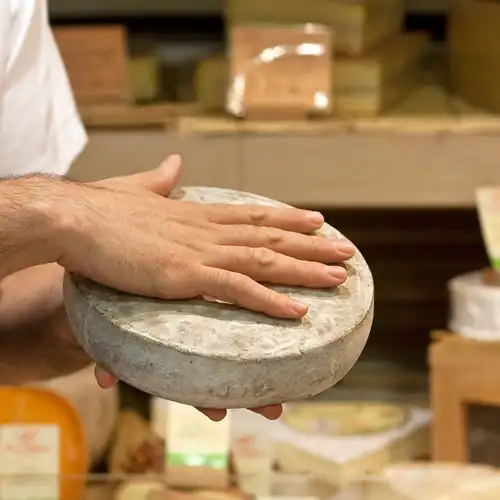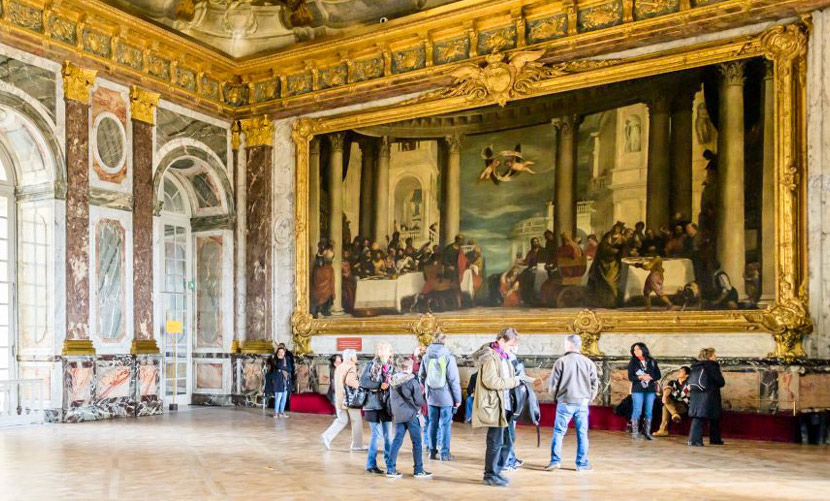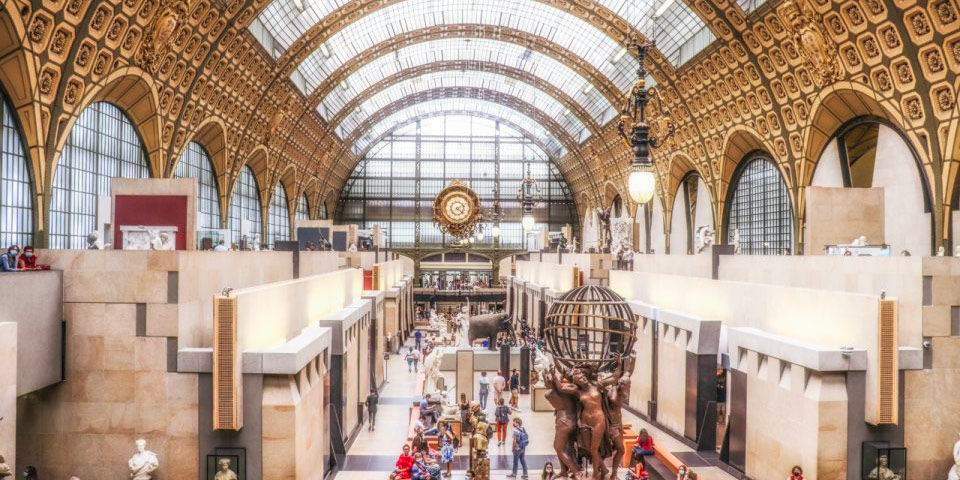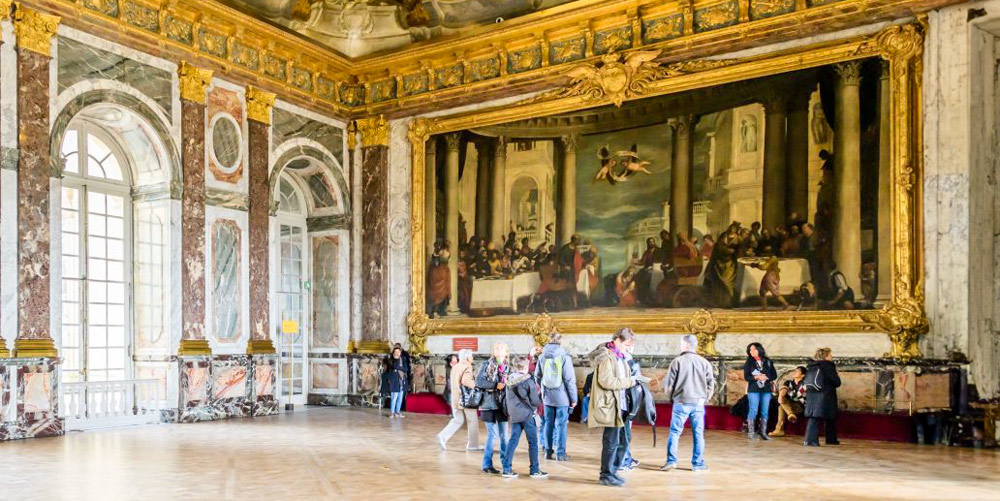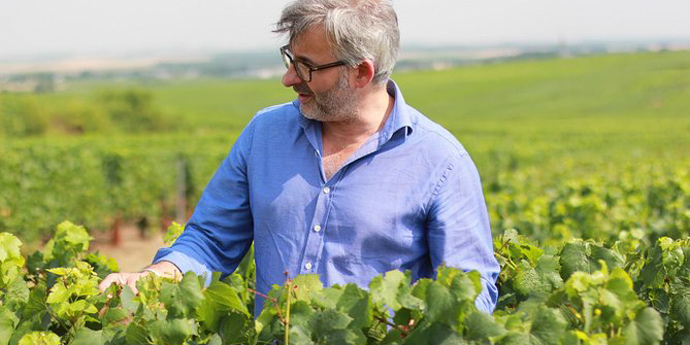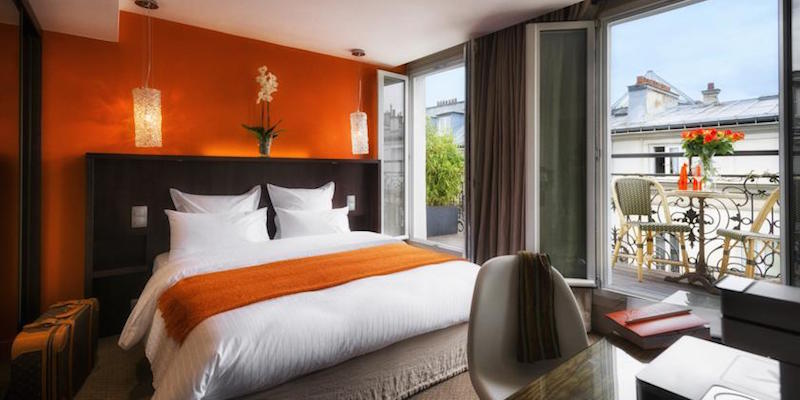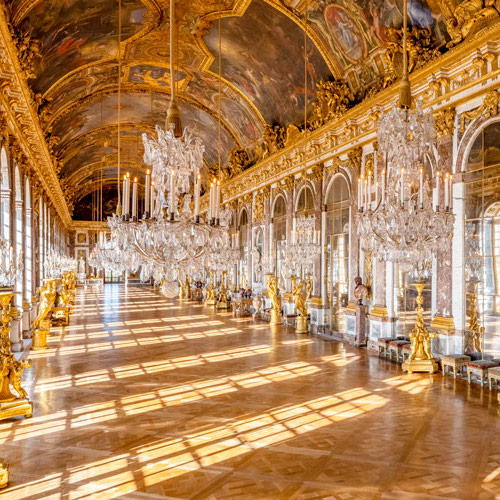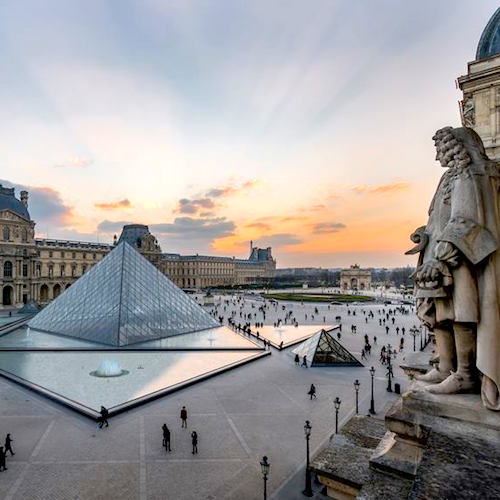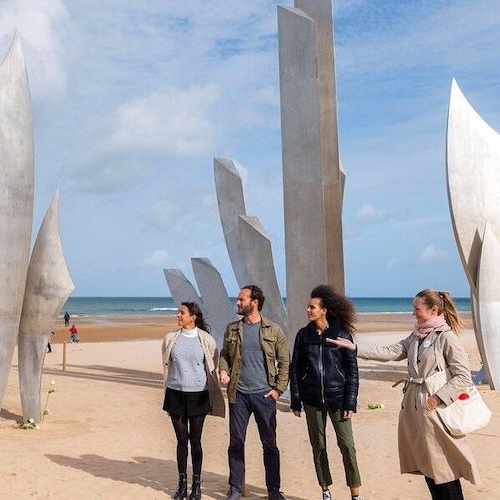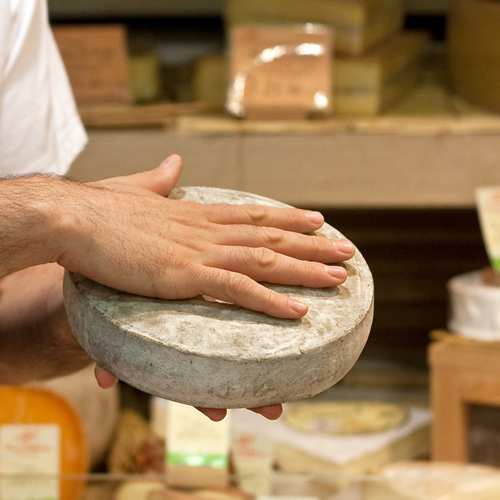13th Arrondissement – Arts, Entertainment & Postmodernism
Although not as well known to visitors as some other Paris quartiers, the 13th Arrondissement nonetheless offers hidden charms, such as the thriving new arts and entertainment scene along the Seine. There's a nice contrast between tradition and modern here, from the Manufacture de Gobelins to the massive postmodern Mitterrand Library. The 13th Arrondissement is definitely worth investigation.
![]()
Our Top-Rated Paris Experiences
11 Great Things About the 13th Arrondissement of Paris
1. Manufacture des Gobelins
 Artwork from one of the famous Gobelins tapestries
Artwork from one of the famous Gobelins tapestries
The Gobelins Paris tapestry workshop was established by Louis XIV in 1662 and, amazingly, still produces tapestries today. Original tapestries from the time of Louis XIV now fetch astounding prices. (We wanted one for our office wall, but were a tad short of the million-dollar asking price.)
Here in the 21st century the Gobelins is part of a complex of workshops and restoration facilities that supply the French government with furniture and works of art. Three days a week the Gobelins offers guided tours of the tapestry factory and the weaving workshops. The 90-minute tour includes access to the gallery. Tours are given in French and you must make a reservation in advance by email.
- 42 Avenue des Gobelins
- 13th Arrondissement
- Metro – Gobelins (no surprise, that)
- Website…
![]()
Discover What's On When You're Here...
• January... |
• February... |
• March... |
• April... |
• May... |
• June... |
• July... |
• August... |
• September... |
• October... |
• November... |
• December... |
Discover What's On When You're Here
• January...
|
• February... |
• March... |
|---|---|---|
• April... |
• May... |
• June... |
• July... |
• August... |
• September... |
• October... |
• November... |
• December... |
2. Gare d'Austerlitz
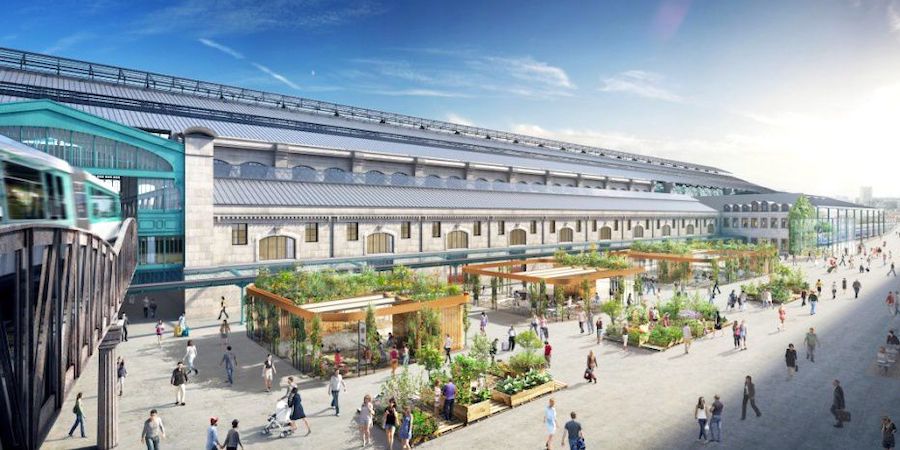 Gare d'Austerlitz and environs after the 2021 renovation
Gare d'Austerlitz and environs after the 2021 renovation
Gare d'Austerlitz is next to Jardin des Plantes (5th Arrondissement) and pretty much across the river from Gare de Lyon. From Austerlitz you can get to to Tours, Toulouse, Orleans and, with a recent expansion of the number of tracks, to Le Mans and Tours in southwest France.
The gare is one of the oldest in Paris, first opened in 1838 as Gare d'Orléans since it primarily served that city. The name was later changed to honor Napoleon's victory at the Battle of Austerlitz (that occurred 35 years before the station was built). We suspect this name change was the work of Napoleon III, Bonaparte's nephew.
We have always liked the smaller scale of Gare d'Austerlitz compared to the giant train stations of Paris like Gare du Nord and Gare de l'Est (and especially the charmless Gare Montparnasse). Even though a 21st century expansion and renovation added more platforms and capabilities to handle some overflow TGV routes, the accompanying improvements to the area surrounding the gare and the "green" approach helps to keep Austerlitz attractive to riders and visitors.
![]()
3. Hotel Villa Romantic
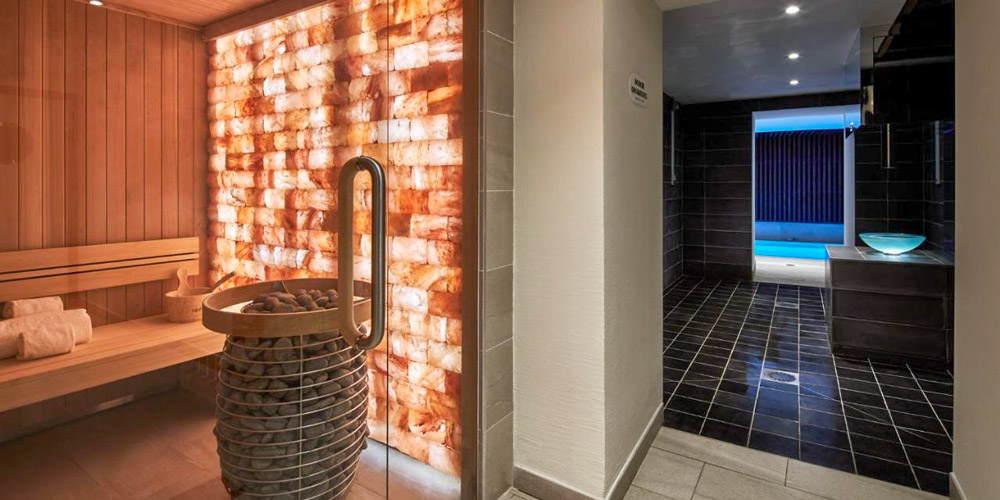 The spa and pool at Hotel Villa Romantic
The spa and pool at Hotel Villa Romantic
There are a few interesting hotels in the 13th and the Villa Romantic is one of them. Travelers are impressed with the gorgeous rooms, the tidy grounds, and the spa & swimming pool. They also appreciate the location with easy access to the Metro. Air conditioning in the rooms is just one more bonus.
Our Rating — Superb
• 35 Rue du Banquier
4. Les Docks – Cité de la Mode et du Design
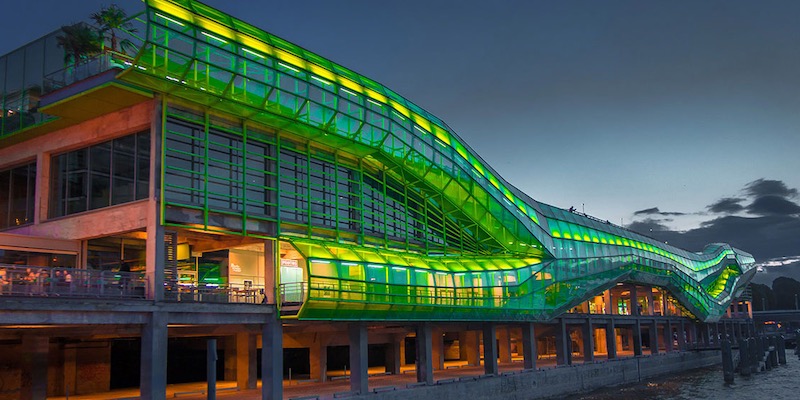 Les Docks from the Seine at night, photo Cité de la Mode et du Design
Les Docks from the Seine at night, photo Cité de la Mode et du Design
The banks of the Seine along the 13th were pretty much given over to shipping and industry. That is until the Bibliothèque Nationale project sparked a renewal of much of the quais. In the first decade of the 21st century a change began with the transformation of a large, concrete transit warehouse into a centre of fashion and design.
The strikingly-ugly original building was transformed by the addition of a sort of green implant, made of steel and silkscreened glass, grafted on to the concrete structure. The "ocean liner of concrete" had been transmogrified into the City of Fashion. Not all critics were pleased. Former French President Sarkozy dubbed it "truc vert", the green thing, but more positive reviews called it "Beaubourg vert", referencing the modernity of Centre Pompidou (also known as Beaubourg). At night the green facade is lit from inside, as if curious aliens have landed their ship on the quai.
Today the complex houses the Institut Français de la Mode, dedicated to training and research in the fashion, luxury, design and textile industries, although there is a larger concern for culture and style with artists, designers, fashion designers, photographers, architects, graphic artists, and landscape designers finding space in the green thing.
The site hosts conferences and special exhibitions, but perhaps the biggest attractions are the food venues, bars, and clubs, including a rooftop venue with great views on the Seine.
- 34 Quai d'Austerlitz
- 13th Arrondissement
- Metro – Gare d'Austerlitz or Quai de la Gare
- Website…
![]()
|
Skip the lines and join an expert-led tour through the Musée d'Orsay — home to Van Gogh, Degas, and Monet. It’s the ultimate walk through 19th-century art in a grand old train station. |
|
Skip the lines and join an expert-led tour through the Musée d'Orsay — home to Van Gogh, Degas, and Monet. It’s the ultimate walk through 19th-century art in a grand old train station. |
5. COQ Hotel Paris
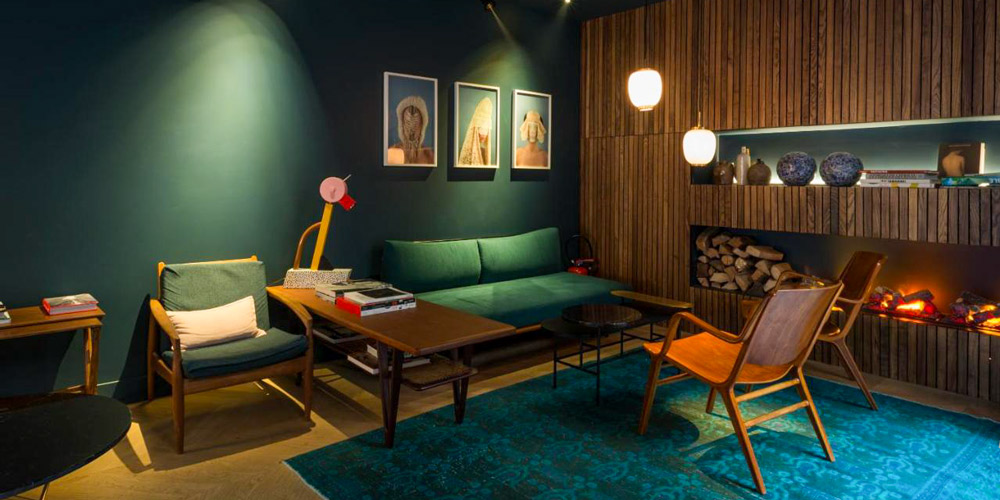 The lounge & fireplace at COQ Hotel Paris
The lounge & fireplace at COQ Hotel Paris
Hotel COQ (which stands for "Community of Quality") is another accommodation in the 13th that garners glowing reviews from travelers who cite the quiet, central neighborhood near Place d'Italie. They also love the the vintage-style bathtubs found in the stylish and beautiful rooms.
Our Rating — Superb
• 5 Rue Edouard Manet
6. Piscine Joséphine Baker
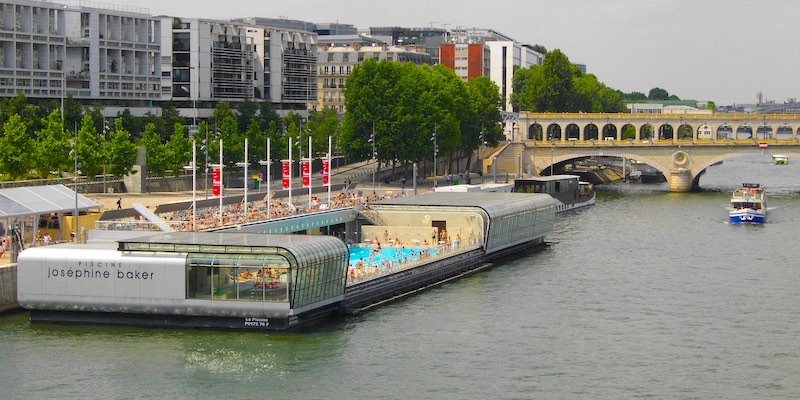 Piscine Josephine Baker, photo Wikimedia by Dinkum
Piscine Josephine Baker, photo Wikimedia by Dinkum
Other parts of Paris along the banks of the Seine get the summer-long beach party that is Paris Plage, but the 13th Arrondissement dives into its own watery experience, – the floating public pool complex Piscine Joséphine Baker. (How many other swimming pools in France are named for an American?) The pool is open year round, but it shows best on nice summer days when the glass roof opens up to give swimmers and sunbathers a glorious view of the Seine.
The aquatic complex features a 25-meter swimming pool, with lanes for swimmers of all levels, a summertime sun deck, a wading pool for children, saunas, jacuzzi, and a fitness gym. Entry fees start at €3.60. Open from 7 AM to 8 PM or 11 PM seasonally. Closed for lunch, of course.
- On the Seine at the foot of the Mitterrand Library complex.
- Metro – Quai de la Gare or Bibliothèque François Mitterrand on Line 14 & RER C
- Website…
![]()
|
Trade Paris bustle for royal grandeur on a guided Versailles tour. Skip the lines, wander the gardens, and peek inside Marie Antoinette’s private estate. History never looked this good. |
|
Trade Paris bustle for royal grandeur on a guided Versailles tour. Skip the lines, wander the gardens, and peek inside Marie Antoinette’s private estate. History never looked this good. |
7. Bibliothèque Nationale de France AKA Mitterrand Library
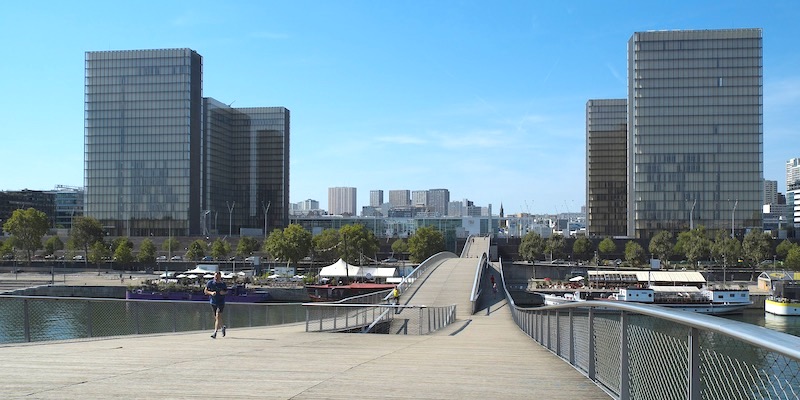 Bibliothque Nationale, photo Wikimedia by GFreihalter (Passerelle Simone de Beauvoir in foreground)
Bibliothque Nationale, photo Wikimedia by GFreihalter (Passerelle Simone de Beauvoir in foreground)
It was back in 1368 that Charles V started a royal library, housed in the Louvre palace. Through generations and kings (some of them involved, some uninterested) the library slowly grew as it moved from place to place in Paris. At the French Revolution the library's collection exploded with books seized from the clergy and aristocracy.
Napoleon got involved, naturally, making sure that any book available in France was also part of the National Library's collection (for it was now part of the French state). In the following decades the library settled into a building on Rue de Richelieu in the 2nd. That location is still part of the National Library, but in the later 20th century then-French-president François Mitterrand called for the construction of a grandiose new library that would (incidentally perhaps) also memorialize his presidency
It doesn't seem to have quite worked out like Mitterrand hoped, since the new Bibliothèque Nationale de France (BNF) in the 13th, which opened finally in 1996, has been the subject of as much criticism as praise. The four 25-story towers describing a large rectangle are certainly noticeable on the banks of the Seine, but they attracted a strong negative reaction from the get-go. The project suffered huge delays and costly overruns. The plaza between the towers was called a "wind tunnel". And so it went. (For example, a wireless network wasn't installed in the library until 2016!)
However, today the BNF makes for an interesting visit, perhaps to view one of its special exhibitions. Also be sure to seek out the two 20-foot glass globes commissioned by Louis XIV in 1681, currently on display at the Mitterrand Library.
- Quai François-Mauriac
- 13th Arrondissement
- Metro – Quai de la Gare or Bibliothèque François Mitterrand on Line 14 & RER C
- Website…
8. Metro Line 14 – Météor
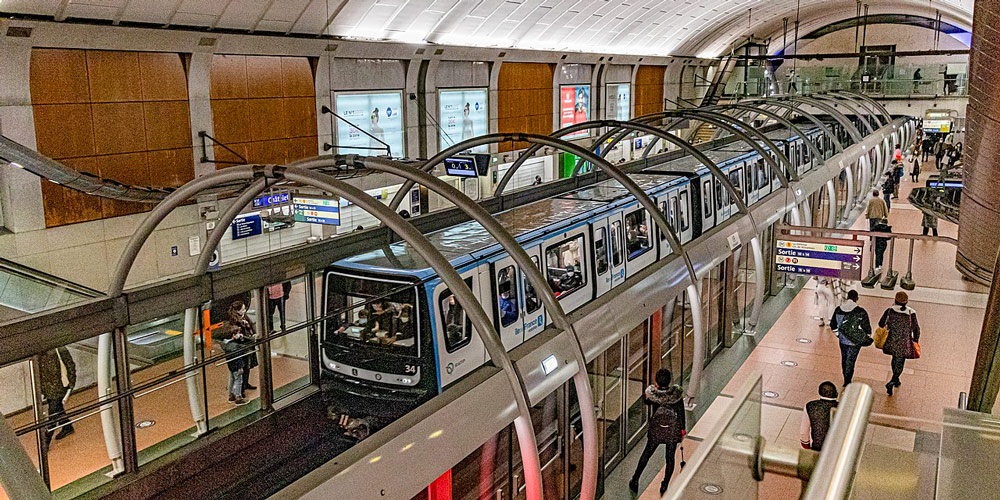
As soon as it opened in 1998 Line 14 became our favorite Metro ride. Not so much because of where it goes, but because of its modern look and speedy efficiency. Or maybe it was the because the line was fully automated, and there was a certain thrill to hoping aboard the first driverless Metro train, riding in the very front with a clear view of the tunnels. It's hard to believe that it was two decades that this futuristic route opened. (Heck, we have Paris map books older than that, which we still use, that don't yet show this line.)
Line 14 originally ran from Madeleine in the north to Bibliothèque François Mitterrand. Since then the line has been extended on both ends — to Saint-Lazare and Olympiades, with future expansions planned. We still sometimes find ourselves taking an out-of-the-way route just so we can ride on the mighty 14.
![]()
|
Escape to the Land of Bubbly on a small-group day tour from Paris. Taste at top Champagne houses, meet boutique producers, enjoy a leisurely lunch, and toast to a perfectly sparkling day. |
|
Escape to the Land of Bubbly on a small-group day tour from Paris. Taste at top Champagne houses, meet boutique producers, enjoy a leisurely lunch, and toast to a perfectly sparkling day. |
9. Passerelle Simone de Beauvoir
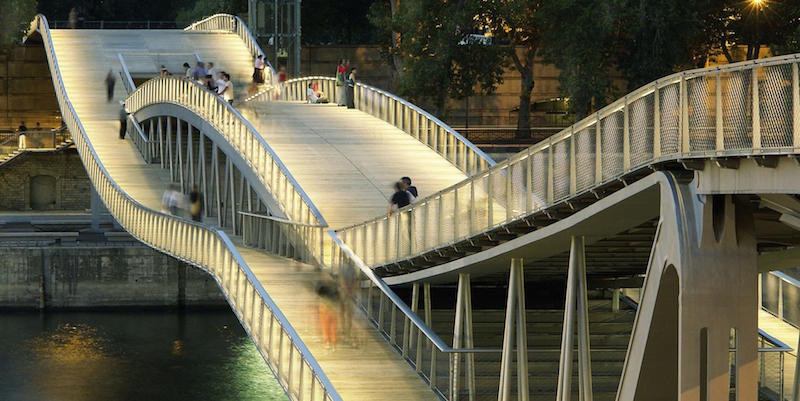 Passerelle Simone de Beauvoir, Dietmar Feichtinger Architectes, photo by David Boureau
Passerelle Simone de Beauvoir, Dietmar Feichtinger Architectes, photo by David Boureau
The newest pedestrian bridge in Paris is a modernistic design wonder that spans the Seine between the 12th and 13th Arrondissements, connecting Parc de Bercy with the blocky & equally-modern (but much less attractive) Bibliothèque François Mitterrand.
Steel and oak are combined to create a near-miraculous span that requires no central support. The bridge was actually built by the Eiffel factory (yes, that Eiffel) in eastern France and was transported to Paris by water.
- Quai François-Mauriac
- 13th Arrondissement
- Metro – Quai de la Gare or Bibliothèque François Mitterrand on Line 14 & RER C
10. Petit Bain
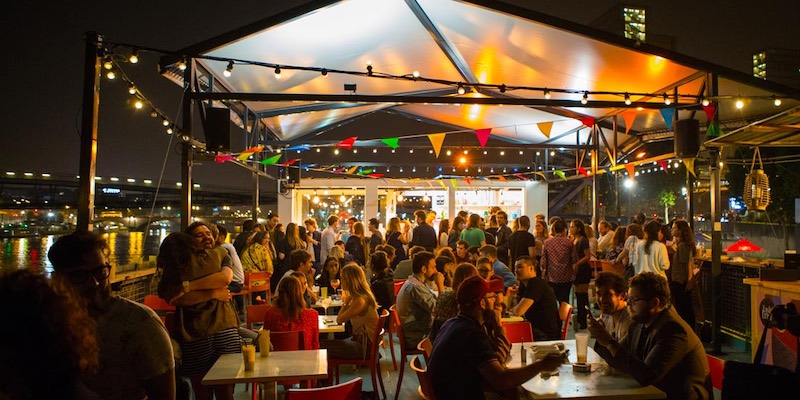 Petit Bain, photo Petit Bain by Thierry Guillaume
Petit Bain, photo Petit Bain by Thierry Guillaume
Moored at the foot of the BNF is another floating venue. This one, though (despite its name), is not a swimming pool but a bright yellow barge that incorporates a concert hall, a canteen, a terrace, and a hanging garden. A 450-seat concert hall brings to the stage music from rock & pop, to hip-hop, metal, even world music. La Cantine offers up simple, shareable meals for before concerts, after concerts, or anytime you want to meet up with friends. In summer there's also a terrace on the quai itself.
- 7 Port de la Gare
- 13th Arrondissement
- Metro – Quai de la Gare or Bibliothèque François Mitterrand on Line 14 & RER C
- Website…
![]()
|
Browse our hand-picked Paris hotel deals with real-time discounts of up to 20%. Stay in the Marais, Saint Germain, the Latin Quarter, the Left Bank near the Eiffel Tower… every arrondissement is on the list. |
|
Browse our hand-picked Paris hotel deals with real-time discounts of up to 20%. Stay in the Marais, Saint Germain, the Latin Quarter, the Left Bank near the Eiffel Tower… every arrondissement is on the list. |
11. Les Frigos
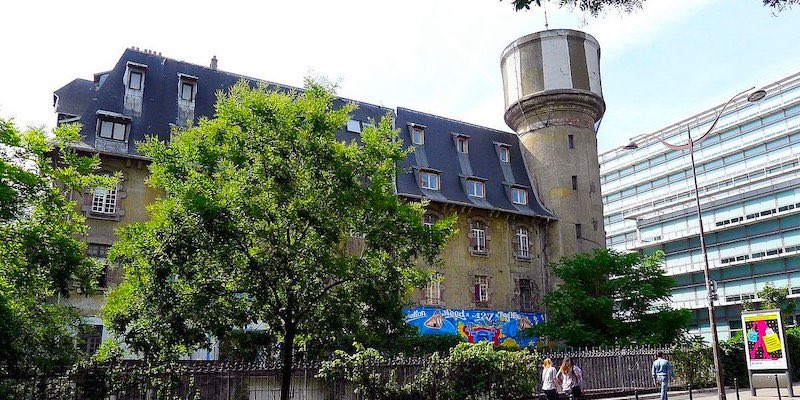 Les Frigo, photo Wikimedia by Mbzt
Les Frigo, photo Wikimedia by Mbzt
This untamed artist and musician studio complex has taken over what was a giant (and ugly) refrigerated railway depot & warehouse from the 1920s. When all the wholesale food depots of Paris moved to Rungis (including the former market at Les Halles) this blocky building was abandoned until it was "liberated" by artists and artisans in the 1980s.
Through a succession of building ownership changes and legal wranglings, the artistic squatters eventually became semi-legal renters of the 100 or so studios in the building. Working here you'll find artists of all types, musicians, small publishing houses, actors, and writers. How it all holds together is a bit of a mystery, especially while the warehouse area around it was completely rebuilt as a new neighborhood, Paris Rive Gauche, in the 2000s. During that hubbub a new street was built separating the new construction from the old warehouse. The street was named, appropriately, Rue des Frigos. (You can see the contrast between the old and new in the photo.)
Les Frigos now hosts occasional exhibitions and other cultural events, and you can even visit some of the artists' studios. Check on the website for more information.
- 19 Rue des Frigos
- 13th Arrondissement
- Metro – Quai de la Gare or Bibliothèque François Mitterrand on Line 14 & RER C
- Website…
Top Food Markets in the 13th
- ALÉSIA
Rue de la Glacière and Rue de la Santé, 13th
Wednesday 7:00 AM to 2:30 PM.; Saturday 7:00 AM. to 3:00 PM - MAISON-BLANCHE
Avenue d'Italie, between #110 and #162, 13th
Thursday 7:00 AM to 2:30 PM.; Sunday 7:00 AM to 3:00 PM
![]()
The Best Evenings in Paris
|
Dinner & Cabaret at the Moulin Rouge |
VIP Dinner Cruise with Bateaux Parisiens |
|
Dinner & Cabaret at the Moulin Rouge |
13th Arrondissement Resources
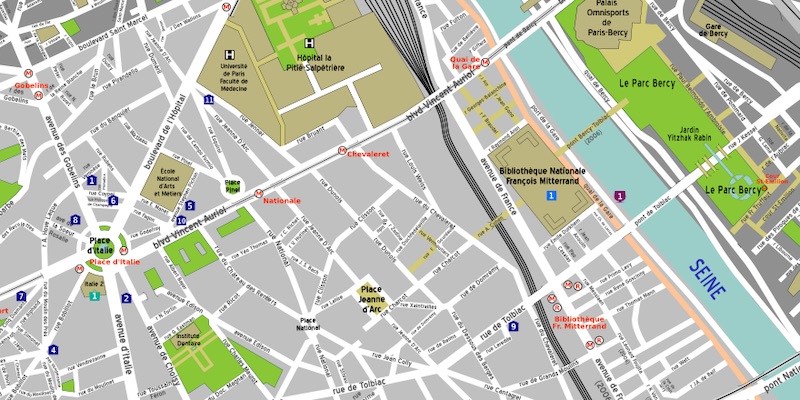
- Of the three southern arrondissements (13th, 14th, 15th,) the 13th is the middle in population with just over 180,000 Parisians living here.
- The Metro lines that service this large area are the 6 (east-west), the end of the 14, the 7, the 5, and the 10 (which ends at Gare d'Austerlitz).
Paris Planning Guides
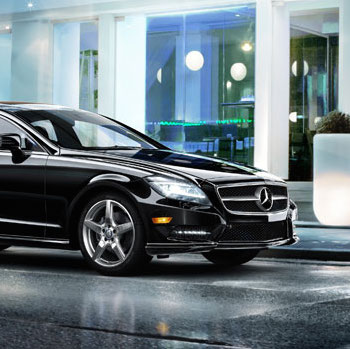 Book an Airport Transfer
Book an Airport Transfer |
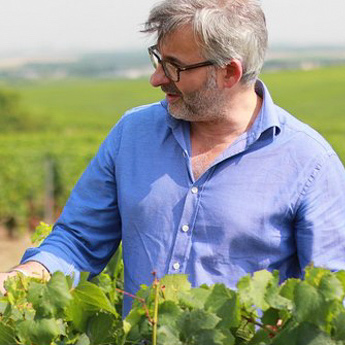 VIP to Champagne
VIP to Champagne |
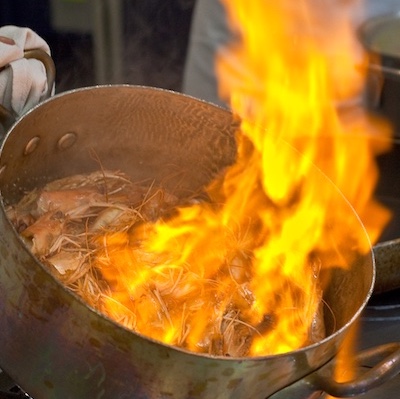 Top 10 Food Tours
Top 10 Food Tours |
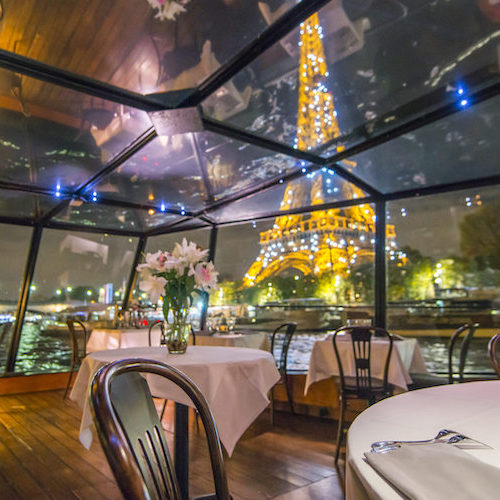 Glorious Dinner Cruises
Glorious Dinner Cruises |
